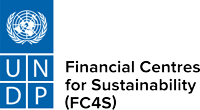FC4S joins leading banks and companies along with UK, French, Swiss and Peruvian governments in effort to set up a Task Force on Nature-related Financial Disclosures
London, 25 September 2020: Efforts to establish a Task Force on Nature-related Financial Disclosures (TNFD) have today passed an important milestone with the announcement of an Informal Working Group (IWG) comprising some of the world’s biggest banks, investors and companies, as well as governments and regulatory bodies.
The 62 members that make up the IWG are part of the initial planning phase of the TNFD, tasked with establishing a detailed work plan for the Task Force for when it launches in 2021.
A TNFD will build awareness and capacity to enable the financial sector to address the market and systemic failures contributing to the destruction of nature. Data gaps currently prevent financial institutions from assessing their nature-related risks, the IWG will be discussing how to bridge this gap, enabling global finance to shift from nature negative to nature positive.
At the Business of Finance Day at the Nature for Life Hub, Bérangère Abba, French Secretary of State, Ministry for Ecological Transition, announced the IWG and its commitments to the creation of a Task Force and an international reporting standard that is critical for halting biodiversity and ecosystem loss.
Bérangère Abba said: “Biodiversity finance is the new frontier of green finance. Nature requires as much ambition and collective effort as it has been done for climate so far, and the private sector can play a crucial part in redirecting financial flows. We are convinced that the work of the Task-force on Nature-related Financial Disclosures, or “TNFD”, will accelerate the understanding of these issues and will ultimately lead to both a reduction in financial flows and economic activities that are harmful to biodiversity and a massive redirection of flows towards activities that are favourable to biodiversity.”
Madeleine Ronquest, Head Environmental, Social and Climate Risk at FirstRand Group Enterprise Risk Management (South Africa), said: “The launch of the Informal Working Group (IWG) for the TNFD is a significant step towards the goal of moving the global financial system from nature negative to nature positive. I look forward to working with the IWG members to shape and implement the Task Force that will help to make this transition possible.”
“Loss of nature is increasingly impacting business performance. Consumers, stakeholders and governments expect business to take actions which halt the loss of nature. WBCSD supports the launch of the TNFD which will help companies consistently and credibly assess, address and report their impacts and dependencies on nature”, added Diane Holdorf, Managing Director & Senior Management Team, World Business Council for Sustainable Development.
The IWG will meet on a monthly basis and will be supported by a Technical Expert Group (TEG), which is currently in the final stages of formation. The TEG will serve at the direction of the IWG and support the working group in articulating the scope and objectives for the TNFD; the group will be made up of individuals with representative expertise and overview of relevant sources for biodiversity data and tools for assessing nature-related investment risk.
Partner and Think Tank Quotes
Stephen Nolan, Managing Director of the International Network of Financial Centres for Sustainability says: “As we have learned nature-positive transitions could generate trillions of dollars in business value and as well potentially hundreds of millions of jobs. That could fundamentally reshape the world and the environment we live in for the better. FC4S is proud to be one of the think tanks assisting the Informal Working Group (IWG) to establish the Task Force on Nature-related Financial Disclosures; as we hope to use sustainable finance to catalyse nature-positive outcomes, in alignment with the UNFCCC Paris Agreement, the CBD Post-2020 Global Biodiversity Targets and the UN Sustainable Development Goals.”
Andrew Mitchell, a Founder and Senior Advisor to Global Canopy commented: “The creation of a TNFD is hugely important as it will lead to new ways of identifying, valuing and reporting on nature-related risks, as well as identifying new economic opportunities to protect and restore the natural world on which we depend, which is more pressing than ever. To have the commitment of these heavyweight companies joining the IWG is a great start in this initiative.”
Midori Paxton, Head of Ecosystems and Biodiversity, UNDP says, “Changing flows of money from nature negative to nature positive is a fundamental ingredient in shifting global systems towards protecting and nurturing nature. Nature underpins world’s businesses. We desperately need nature – for air, water, food and for our health, inspiration, jobs, livelihoods and for achieving the Sustainable Development Goals. Financial institutions and businesses have a critical key to protect nature. If we protect nature, it will pay us back with significant financial and material dividends.”
Eric Usher, Head of UN Environment Programme Finance Initiative said: “An increasing number of financial institutions are stepping forward to address the twin crises of climate change and the loss of nature, and the strong appetite for a TNFD is further evidence of this momentum. Standardising nature-related disclosures will bring much needed efficiencies and transparency to financial markets.”
Margaret Kuhlow, Finance Practice Lead and Interim Conservation Director, WWF International said: “Habitat loss and degradation including deforestation that is largely driven by the way we produce and consume food are rapidly undermining the natural systems on which our economies and our own health rely. Nature loss is a source of systemic risk and instability for markets and the financial system but is largely ignored in corporate and financial decision-making, regulation, and supervision. Our economic behavior has assumed the services that healthy natural systems provide, and on which our economies have been built, are infinite. They aren’t. We are pleased to welcome this collaboration with financial institutions, governments, and other experts to establish the TNFD as a vehicle to shift finance away from destructive activities and toward a nature-positive economy.”










































